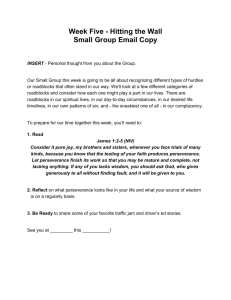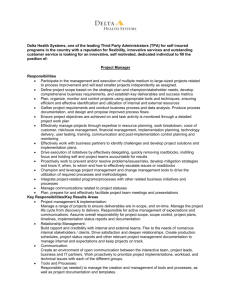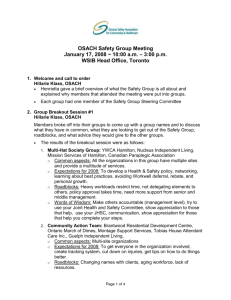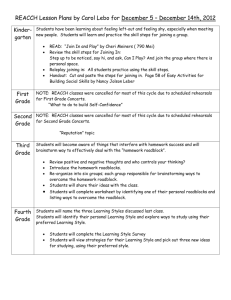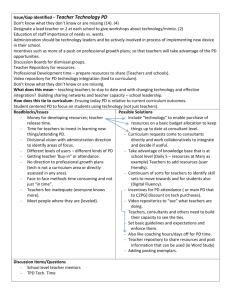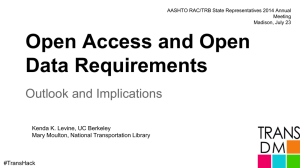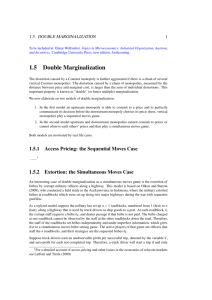Roadblocks to Communication
advertisement
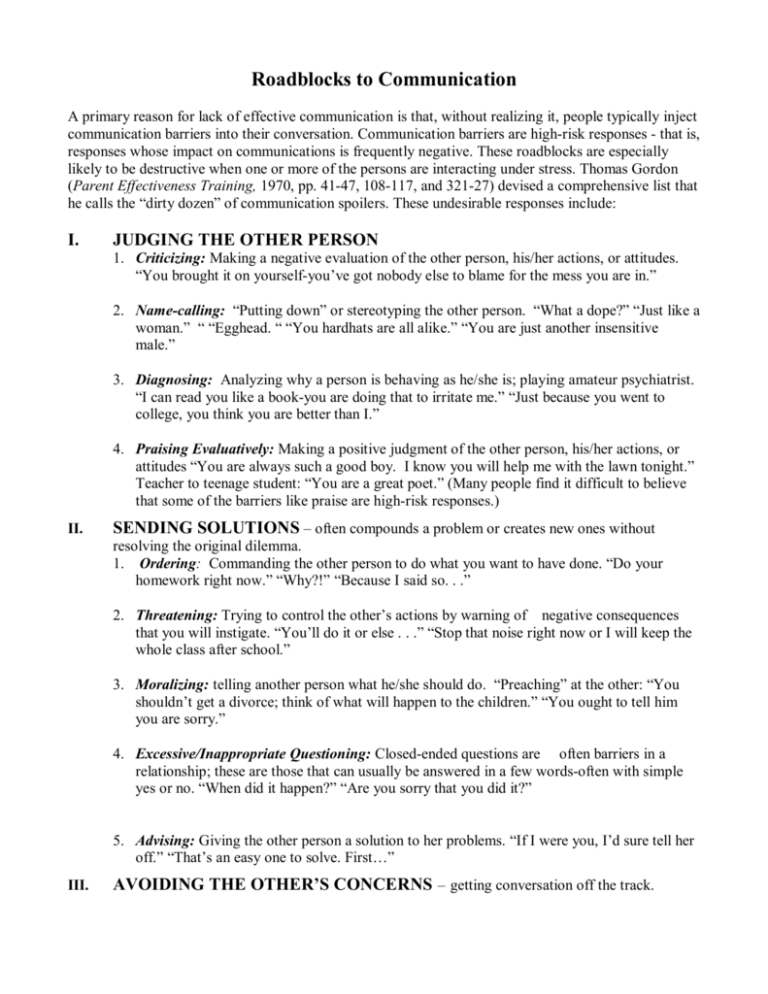
Roadblocks to Communication A primary reason for lack of effective communication is that, without realizing it, people typically inject communication barriers into their conversation. Communication barriers are high­risk responses ­ that is, responses whose impact on communications is frequently negative. These roadblocks are especially likely to be destructive when one or more of the persons are interacting under stress. Thomas Gordon (Parent Effectiveness Training, 1970, pp. 41­47, 108­117, and 321­27) devised a comprehensive list that he calls the “dirty dozen” of communication spoilers. These undesirable responses include: I. JUDGING THE OTHER PERSON 1. Criticizing: Making a negative evaluation of the other person, his/her actions, or attitudes. “You brought it on yourself­you’ve got nobody else to blame for the mess you are in.” 2. Name­calling: “Putting down” or stereotyping the other person. “What a dope?” “Just like a woman.” “ “Egghead. “ “You hardhats are all alike.” “You are just another insensitive male.” 3. Diagnosing: Analyzing why a person is behaving as he/she is; playing amateur psychiatrist. “I can read you like a book­you are doing that to irritate me.” “Just because you went to college, you think you are better than I.” 4. Praising Evaluatively: Making a positive judgment of the other person, his/her actions, or attitudes “You are always such a good boy. I know you will help me with the lawn tonight.” Teacher to teenage student: “You are a great poet.” (Many people find it difficult to believe that some of the barriers like praise are high­risk responses.) II. SENDING SOLUTIONS – often compounds a problem or creates new ones without resolving the original dilemma. 1. Ordering: Commanding the other person to do what you want to have done. “Do your homework right now.” “Why?!” “Because I said so. . .” 2. Threatening: Trying to control the other’s actions by warning of negative consequences that you will instigate. “You’ll do it or else . . .” “Stop that noise right now or I will keep the whole class after school.” 3. Moralizing: telling another person what he/she should do. “Preaching” at the other: “You shouldn’t get a divorce; think of what will happen to the children.” “You ought to tell him you are sorry.” 4. Excessive/Inappropriate Questioning: Closed­ended questions are often barriers in a relationship; these are those that can usually be answered in a few words­often with simple yes or no. “When did it happen?” “Are you sorry that you did it?” 5. Advising: Giving the other person a solution to her problems. “If I were you, I’d sure tell her off.” “That’s an easy one to solve. First…” III. AVOIDING THE OTHER’S CONCERNS – getting conversation off the track. 1. Diverting: Pushing the other’s problems aside through distraction. “Don’t dwell on it, Sarah. Let’s talk about something more pleasant. “Or “Think you’ve got it bad?! Let me tell you what happened to me.” 2. Logical Argument: Attempting to convince the other with an appeal to facts or logic, without consideration of the emotional factors involved. “Look at the facts: if you hadn’t bought that new car, we could have made the down payment on the house.” 3. Reassuring: Trying to stop the other person from feeling the negative emotions she is experiencing, “Don’t worry, it is always darkest before dawn. It will all work out OK in the end.” IV. ADDITIONAL ROADBLOCKS 1. Telling other people they are sending roadblocks: When people are introduced to the roadblocks, a fairly typical reaction is, “That’s just what my husband (boyfriend, girlfriend, mother, etc.) has been doing all these years. Wait till I tell him (her) about all the roadblocks he/she sends.” Or, “Gosh, my boss uses just about all these barriers. The next time he/she does it, I’m going to point out how he/she is roadblocking me.” This type of roadblock actually belongs in the judgment category. If you want to improve your communication, pointing the finger of judgment at others is a poor place to begin. V. SUMMARY Certain ways of verbalizing carry a high risk of putting a damper on the conversation, being harmful to the relationship, triggering feelings of inadequacy, anger, dependency in the other person. These barriers to conversation tend to diminish the other person’s self esteem and to undermine motivation. They decrease the likelihood that he will be self­determining and increase the likelihood that he will put the focus of evaluation outside himself. However, these conversational bad habits can be corrected. As you learn to listen, assert, resolve conflict, and solve interpersonal problems more effectively, your use of the roadblocks will inevitably diminish. Adapted from People Skills: How to Assert Yourself, Listen to Others, and Resolve Conflicts. By Robert Boltton, Ph.D., New Jersey: Prentice­Hall, Inc. 1979, ppl 15­26.
